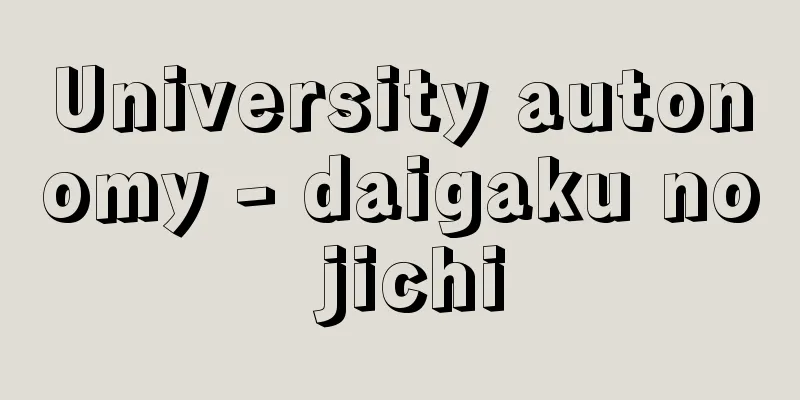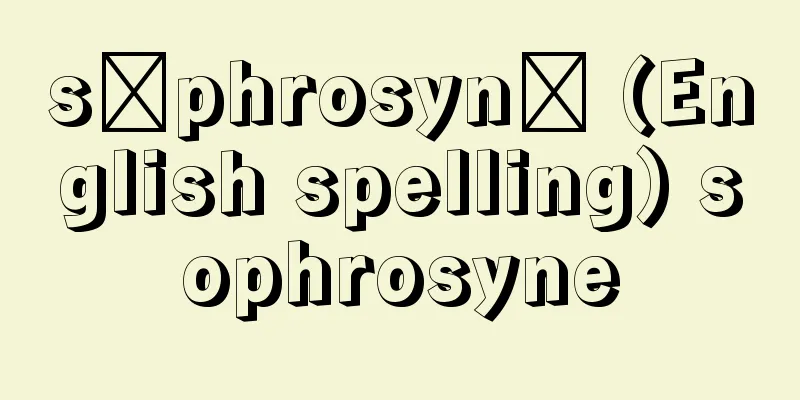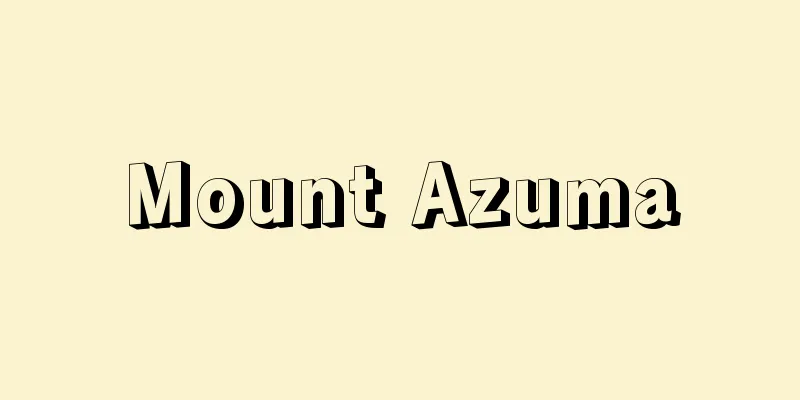University autonomy - daigaku no jichi

|
It means that a university decides and carries out research and education independently and autonomously, excluding pressure and interference from various external forces such as national and social powers. However, this concept has been formed historically (its history dates back to the universities of medieval Europe), and therefore its content is not necessarily fixed and varies greatly depending on the era and country. In Japan, under the Meiji Constitution, there was no explicit guarantee of "university autonomy." However, the Constitution of Japan stipulates that "academic freedom is guaranteed" (Article 23), and based on this philosophy and intent, it is understood that "university autonomy" is directly guaranteed by the Constitution. More specifically, the School Education Law stipulates the principle that a faculty council must be established, while at the same time guaranteeing it important decision-making power (Article 93, paragraph 1), and the National University Corporation Law also imposes an obligation on the state to "consider the characteristics of education and research" at national universities. Today, the content of "university autonomy" is generally considered to include the following items. (1) The right to recommend, appoint, and dismiss faculty personnel, (2) the right to establish school rules and regulations, (3) the right to elect the president and deans, (4) the right to decide on the content, methods, and subjects of education, (5) the right to certify and award degrees, (6) the right to manage university facilities, and (7) financial autonomy. However, the level of autonomy in these areas is not uniform, and in the case of private universities, coupled with the legal guarantee of "private school freedom," the content and level of autonomy there is somewhat different from that of national and public universities. In the so-called university conflicts of the late 1960s, the traditional autonomy of faculty councils was severely criticized and student participation was strongly demanded. Although some changes have been made since then, the structure of the system has hardly changed at all. In addition, with the advent of an era of popularization of higher education and the expansion of science, coupled with the incorporation of national universities and the introduction of an accreditation system for universities (2004), it can be said that "university autonomy" is facing new challenges. [Tadashi Yuki] [References] | |Source: Shogakukan Encyclopedia Nipponica About Encyclopedia Nipponica Information | Legend |
|
大学が、国家権力や社会権力など各種の外部勢力の圧力や干渉を排して、研究と教育を自主的・自律的に決定し遂行することをいう。ただ、この概念は優れて歴史的に形成されてきたもので(その歴史は中世ヨーロッパの大学にさかのぼる)、したがって、その内容はかならずしも既定ではなく、時代や国によって大きく異なる。日本においては、明治憲法下では、「大学の自治」に関する明文上の保障はなかった。しかし日本国憲法は「学問の自由は、これを保障する」(23条)と規定し、その理念と趣旨に基づいて、「大学の自治」は、直接、憲法的保障を受けていると解されている。また具体的には、学校教育法が教授会の必置原則を定めると同時に、これに対して重要意思決定権を保障し(93条1項)、さらに国立大学法人法も国に対して国立大学における「教育研究の特性への配慮」義務を課している。「大学の自治」の内容としては、今日、一般に次のような事項が含まれているとされる。(1)教官の人事に関する推薦・任命・免職権、(2)学則や各種の規程定立権、(3)学長・学部長等の選出権、(4)教育内容・方法・対象の自主決定権、(5)学位資格の認定・授与権、(6)大学施設の管理権、(7)財政自主権。ただ、これらに関する自治の強度は一様ではなく、また私立大学の場合は「私学の自由」の法的保障と相まって、そこにおける自治の内容や強度は国公立大学のそれとはやや異なる。「大学の自治」の主体については、1960年代後半のいわゆる大学紛争で、旧来の教授会自治が激しく批判され、学生参加が強く要求された。しかしその後若干の変革をみたものの、制度的にはその構造にほとんど変化はみられない。なお、高等教育の大衆化や科学の大型化時代を迎え、また国立大学の法人化や大学に対する認証評価制度の導入(2004年)などとも相まって、「大学の自治」はまた新たな課題に当面しているといえる。 [結城 忠] [参照項目] | |出典 小学館 日本大百科全書(ニッポニカ)日本大百科全書(ニッポニカ)について 情報 | 凡例 |
<<: I graduated from college, but
>>: University South Campus - Daigaku Nankou
Recommend
Wagner
German composer. Along with Verdi, he is one of th...
Flounder - Flounder
… Because it is an important fish, it is caught b...
Gujo Domain
A small-to-medium-sized Fudai domain with its head...
Shiranuka [town] - Shiranuka
A town in Shiranuka District, eastern Hokkaido. It...
A selection of koto songs
A document on koto music and song suites. Titled &...
Walter Baade
German-born American astronomer. Discoverer of st...
Ch'ǒn Kaesomun (English spelling)
[raw]? [Death] Hozouou 24 (665) A general and prim...
Hyaena hyaena (English spelling) Hyaenahyaena
...The lifespan of a captive hyena has been recor...
Oryu - Oryu
…It was also believed that the star Bishu brought...
Alliance City War - Alliance City War
A war fought in ancient Greece and Rome between a...
Xanthos, E.
...From the late 17th century, when the Ottoman E...
Pauson, PL
...Many new types of organometallic compounds wer...
Valonia ventricosa (English spelling) Valonia ventricosa
…[Mitsuo Chihara]. . . *Some of the terminology t...
Cantharidine
…Species such as the false longhorn beetle Xantho...
Kienböck's disease
Also known as lunate softening, this is a disease...







![Takebe [town] - Takebe](/upload/images/67cc2026b8957.webp)

